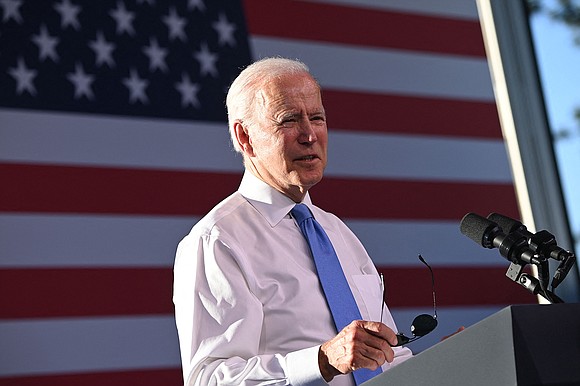Biden to sign bill making Juneteenth a national holiday as many federal workers to have Friday off
CNN/Stylemagazine.com Newswire | 6/17/2021, 12:08 p.m.

Originally Published: 17 JUN 21 12:20 ET
Updated: 17 JUN 21 12:46 ET
By Kate Sullivan, CNN
(CNN) -- President Joe Biden is expected to sign a bill on Thursday establishing June 19 as Juneteenth National Independence Day, a US federal holiday commemorating the end of slavery in the United States.
The President and Vice President Kamala Harris are expected to deliver remarks at the White House on the creation of the federal holiday.
The holiday will be the first federal holiday established since Martin Luther King Jr. Day in 1983, and will become at least the eleventh federal holiday recognized by the US federal government. The US Office of Personnel Management announced Thursday that most federal employees will observe the holiday on Friday since Juneteenth falls on a Saturday this year.
Juneteenth commemorates June 19, 1865, when Union Major General Gordon Granger announced the end of slavery in Galveston, Texas, in accordance with President Abraham Lincoln's 1863 Emancipation Proclamation. Only a handful of states currently observe Juneteenth as a paid holiday.
The legislation, which was passed by Congress on Wednesday, gained momentum following Black Lives Matter protests sparked by the police killing of George Floyd last year. It was also spurred after Democrats won the White House and control of the House of Representatives and the US Senate.
The bill passed the House on Wednesday with a 415-14 vote after the Senate unanimously passed the legislation the day before.
The bill had bipartisan sponsors that included Democratic Rep. Sheila Jackson Lee of Texas, Republican Sen. John Cornyn of Texas and Democratic Sen. Ed Markey of Massachusetts.
Lee told reporters ahead of the final passage of the bill, "what I see here today is racial divide crumbling, being crushed this day under a momentous vote that brings together people who understand the value of freedom."
The 14 Republicans who voted against the bill were Reps. Thomas Massie of Kentucky, Mo Brooks of Alabama, Scott DesJarlais of Tennessee, Andy Biggs of Arizona, Tom Tiffany of Wisconsin, Doug LaMalfa of California, Tom McClintock of California, Mike Rogers of Alabama, Matt Rosendale of Montana, Ronny Jackson of Texas, Ralph Norman of South Carolina, Andrew Clyde of Georgia, Chip Roy of Texas and Paul Gosar of Arizona.
Wisconsin Republican Sen. Ron Johnson had previously blocked the bill in 2020, saying that the day off for federal employees would cost US taxpayers hundreds of millions of dollars. But Johnson dropped his objection this week despite his concerns, which paved the way for the bill's passage in the Senate.







